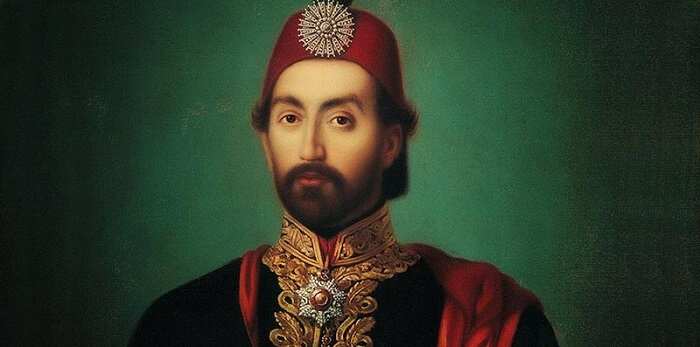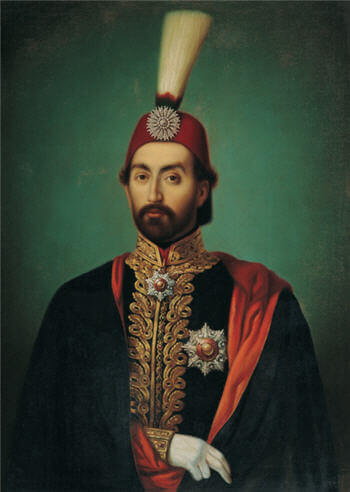Osmanlı İmparatorluğunun 31. padişahı I. Abdülmecit Han’ın İngilizce hayatının anlatıldığı sayfamız. Abdülmecit Han İngilizce hayatı.

Abdülmecit Han İngilizce Hayatı
ABDULMEJID I (1823-1861), was a Turkish sultan of the Ottoman Empire. Born on April 25, 1823, he succeeded his father, Mahmud II, as sultan on July 1, 1839.
He was a liberal, refined, and humane ruler who was very receptive to Western ideas, but he lacked the strength necessary to put into effect the reforms he so earnestly desired. He died on June 25, 1861, leaving the empire in the throes of a financial crisis brought about largely by his unsound fiscal policies.
Abdul-Mejid (or Abdul-Medjid) came to the throne when the Ottoman armies had just suffered a humiliating defeat at the hands of Mohammed Ali, the rebellious governor of Egypt. To gain the support of the European powers, Abdul-Mejid promulgated on Nov. 3, 1839, the Hatt-i Sherif of Gülhane (Noble Rescript of the Rose Chamber). This document ended the internal war and inaugurated the era of the Tanzimat (Reorganization) reform.
Abdul-Mejid hoped, through rescripts, to continue the reforms begun by his father and to demonstrate to the Europeans that the Turks were capable of instituting a modern liberal state. A clause designed to reassure the European powers, who were concerned about the empire’s non-Muslim population, promised to guarantee the liberty, life, and property of all subjects of the sultan. The decree also provided for modernization of the state with a view to regularizing recruitment into the armed forces, collection of taxes, and the judicial processes. Edicts implementing these innovations were issued, but only a few bore lasting results.
Türkçe Hayatı

Abdülmecit (1823-1861), Osmanlı İmparatorluğu’nun bir Türk padişahıydı. 25 Nisan 1823’te doğdu, 1 Temmuz 1839’da babası II. Mahmud’un yerine padişah oldu.
Liberal, incelikli ve insancıl bir hükümdardı ve Batılı fikirlere çok açıktı, ama canı gönülden istediği reformları hayata geçirmek için gerekli güçten yoksundu. 25 Haziran 1861’de öldü ve imparatorluğu büyük ölçüde sağlam olmayan maliye politikalarının yol açtığı bir mali krizin sancıları içinde bıraktı.
Abdülmecid (veya Abdülmecit), Osmanlı orduları Mısır’ın asi valisi Muhammed Ali’nin elinde küçük düşürücü bir yenilgiye uğradığında tahta çıktı. Avrupalı güçlerin desteğini kazanmak için Abdülmecid, 3 Kasım 1839’da Gülhane Hatt-ı Şerifi’ni (Gül Odası’nın Asil Fermanı) ilan etti. Bu belge iç savaşı sona erdirdi ve Tanzimat reformu dönemini başlattı.
Abdülmecid, fermanlar aracılığıyla, babasının başlattığı reformları sürdürmeyi ve Avrupalılara Türklerin modern bir liberal devlet kurabilecek kapasitede olduğunu göstermeyi umuyordu. İmparatorluğun Müslüman olmayan nüfusu hakkında endişe duyan Avrupalı güçlere güvence vermek için tasarlanmış bir madde, padişahın tüm tebaasının özgürlüğünü, yaşamını ve mülkiyetini garanti altına almayı vaat ediyordu. Kararname aynı zamanda silahlı kuvvetlere asker alımı, vergi tahsilatı ve yargı süreçlerinin düzenlenmesi amacıyla devletin modernleştirilmesini de öngörmüştür. Bu yenilikleri uygulayan fermanlar yayınlandı, ancak yalnızca birkaçı kalıcı sonuçlar verdi.